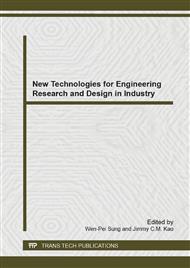[1]
Miao Ju ability to translate research - teaching model constructed on the basis of translation [J] Foreign Language Teaching, 2007, (4): 47-50.
Google Scholar
[2]
Li Ruilin from the ability to translate translator Literacy: Turn target translation teaching [J] Chinese translation, 2011, (1): 46-51.
Google Scholar
[3]
Jiangqiu Xia, right Xiaohui ability to translate theoretical assumptions and translation Behavior [J] Chinese translation, 2006, (6): 11-15.
Google Scholar
[4]
Murray translation capabilities and Translation Test - English / English Translation Test Study Series (IV) [J] Shanghai translation, 2006, (2): 43-47.
Google Scholar
[5]
PACTE. Investigating Translation Ability: Conceptual and Methodological Issues [J]. Meta, 2005, (2): 609-619.
DOI: 10.7202/011004ar
Google Scholar
[6]
Allen Anita l, Privacy-as-Date Control: Conceptual, Practical, and Moral Limits of the Paradigm, Conn. L. Rev. 32(2000).
Google Scholar
[7]
Bennett Colin J, Computers, Personal Data, And Theories of Technology: Comparative Approaches to Privacy Protection in the 1990s, Science, Technology, & Human Values 16(1991).
DOI: 10.1177/016224399101600103
Google Scholar
[8]
David L. Hudson, The Right to Privacy, Chelsea House, (2009).
Google Scholar
[4]
James P. Nehf, Recognizing the Societal Value in Information Privacy, Washington Law Review, vol. 78(2003).
Google Scholar
[9]
REN Jian-dong, Something about problems in the protection of networkresources: technology, law and morality, Journal of Beijing University of Posts Telecommunications, vol. 7(2), pp.1-5, (2005).
Google Scholar
[10]
Zhao Bingzhi. Yu Zhigang, Computer Crimes and the Legislative and Theoretical Responses thereto, Chinese Legal Science, vol. 1, pp.148-163, (2001).
Google Scholar


